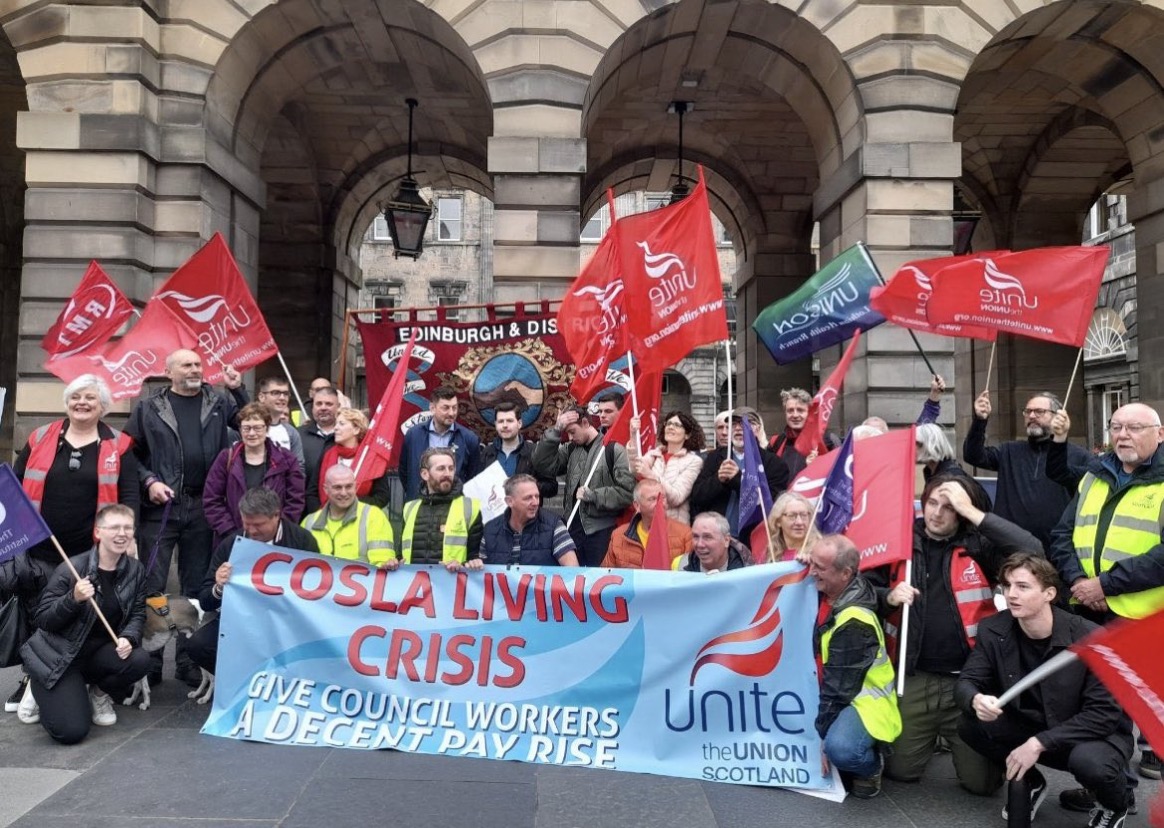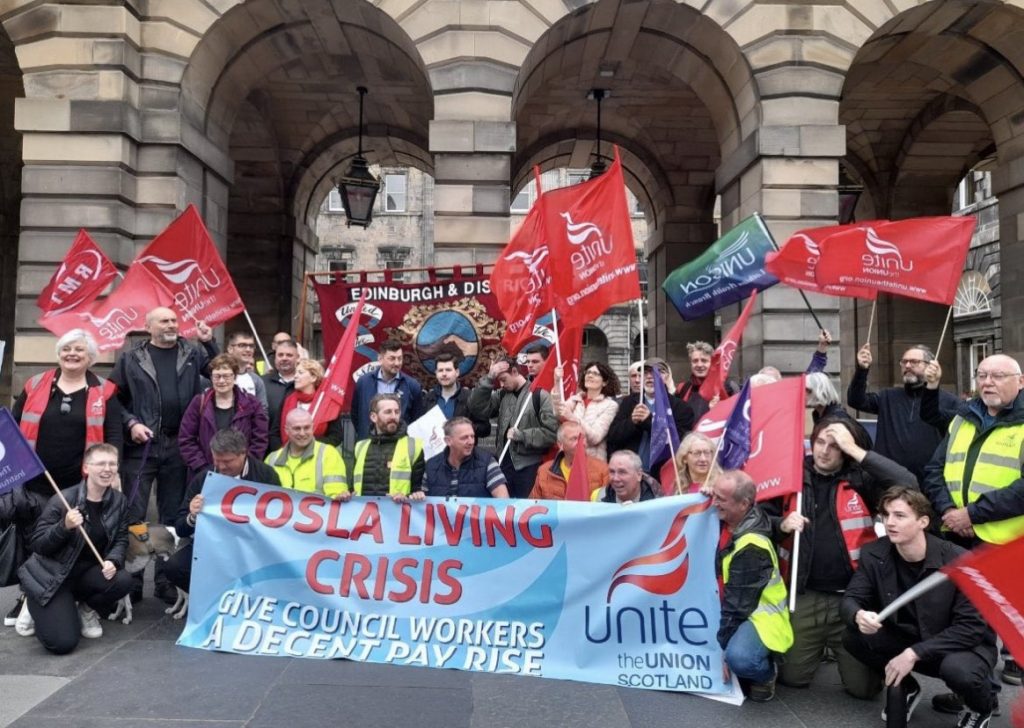Strike action by Unite, GMB, and Unison in Scottish local authorities this year was a heroic but difficult fight. Unions faced many hurdles in the process, from fraught negotiations to climbing inflation that threatens the integrity of pay offers.
Beyond the material constraints, political ones existed too; in the context of the media, reactionaries of all types couldn’t find a target to blame. On the one hand, it was SNP in Hollyrood and the local authorities they hold, on the other hand, it was Labour or Westminster. In this dizzying storm of blame, the strikes became the backing track for small-time strong ‘men’ to wage their fights.
“This is a national crisis playing out in Edinburgh’s streets during our busiest and most important time of the year,” Edinburgh council leader Cammy Day stated during the strikes. This statement is starker than most because it offers a consistent understanding of what the situation was- it was a segment of the Scottish working class taking their power national and it worked.
They won 600M from the Scottish government to fund all local government workers. This, in essence, means each council employee, in Edinburgh for example, would on average earn £1,444 more as the result of taking action.
Beyond the impact of pay rises, these strikes also brought about more general reforms to labour practices within councils. Councils will now pay Scottish Social Services Council fees –– essentially, a tax on working ––for social care employees throughout Scotland. This win puts money back in the hands of the workers.
If the history books are to be written of this period, the RMT will stand as magistrates of reinventing a struggle for better wages and conditions. Their efforts from the beginning of the year, their consistent approach and their undeterred exterior produced a victory for the ScotRail workers.
Unite CEC, the Edinburgh branch of Unite that led the cleansing strikes, began a prolonged propaganda campaign and pre-ballot organising beginning in January, they led an original effort all the while keeping their cards to their chest. Under the banner of the ‘Cosla living crisis’, they canvassed two core sections of the council’s services- bins and schools. Always on the strategic side, they looked to have both of these as strike-ready forces- the logic is cruel but obvious, they could be used as a staggering force.
The material gains and the tactical wins are all present in this strike, and so was a wider growth in community support. Both in Glasgow and Edinburgh, strike support groups grew as part of these strikes which formed one piece in a wider nationwide strike wave. This ensured no members suffered financial hardship as a result of taking action and showing physical support for pickets.
Grant MacDonald, is a member of the YCL’s Edinburgh Branch




